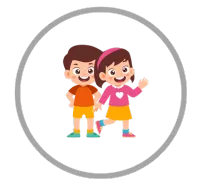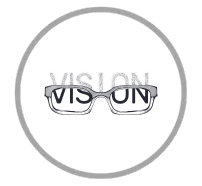Vision Therapy Overview
Vision Therapy for Children: Improving Focus and Coordination
FSDAVCFEBFEVSDDVFSD
FSDAVCFEBFEVSDDVFSD
FSDAVCFEBFEVSDDVFSD
What is Vision Therapy?
Vision therapy is a non-surgical, customized treatment designed to address various visual issues in children, such as eye tracking problems, focusing difficulties, and visual processing disorders. Unlike traditional eye exams, it goes beyond diagnosis to correct these issues through specific exercises and activities. Supervised by a trained optometrist, the therapy helps improve eye coordination, focus, and visual function, boosting both academic and social performance.
For children struggling with eye tracking and visual processing, tasks like reading, writing, or following instructions can be overwhelming. Vision therapy guides them through exercises that enhance the connection between their eyes and brain, improving their ability to perform everyday tasks over time.
Vision therapy is a non-surgical, customized treatment designed to address various visual issues in children, such as eye tracking problems, focusing difficulties, and visual processing disorders. Unlike traditional eye exams, it goes beyond diagnosis to correct these issues through specific exercises and activities. Supervised by a trained optometrist, the therapy helps improve eye coordination, focus, and visual function, boosting both academic and social performance.
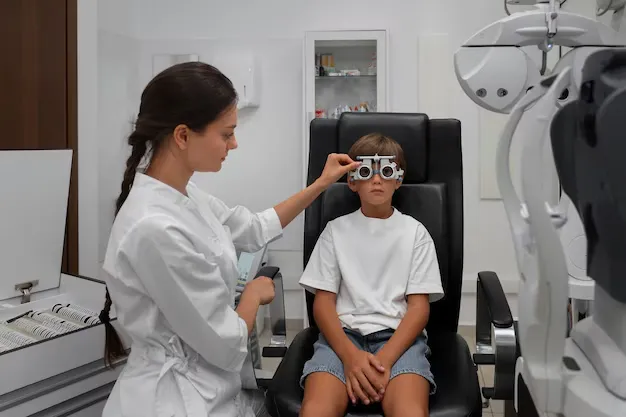
For children struggling with eye tracking and visual processing, tasks like reading, writing, or following instructions can be overwhelming. Vision therapy guides them through exercises that enhance the connection between their eyes and brain, improving their ability to perform everyday tasks over time.

Key Benefits of Vision Therapy
Vision therapy offers numerous benefits for children with visual challenges, extending far beyond just improved eyesight. One of the primary advantages is its ability to enhance eye coordination, which is essential for daily tasks like reading, writing, and following moving objects. For children with eye tracking difficulties, therapy helps them follow words on a page more easily, directly improving reading skills. This improvement is crucial for academic success, as children can better concentrate and retain information in the classroom.
Another significant benefit of vision therapy is the improvement in a child's ability to focus. By strengthening the muscles responsible for focusing, children can maintain attention on a single point without being easily distracted. This ability to concentrate not only enhances their academic performance but also helps with tasks such as completing homework or participating in class discussions.
In addition to academic gains, vision therapy can also have a profound impact on a child's social development. Visual issues can affect how children perceive others and interact in social settings, leading to difficulties with communication and behavior. As their visual skills improve, children often experience increased confidence, emotional regulation, and social interactions. They are better equipped to engage with peers, leading to healthier social relationships and overall emotional growth.
Common Visual Issues Addressed
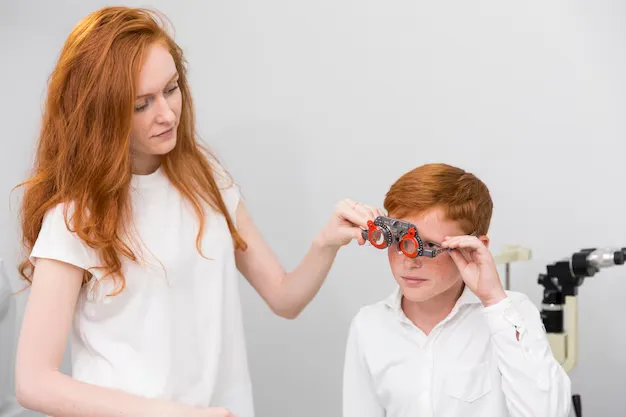
Vision therapy is effective in treating common visual issues that affect a child’s ability to focus and coordinate, including eye tracking problems, convergence insufficiency, and visual processing disorders. Eye tracking problems make it difficult for children to follow text or moving objects smoothly.
Convergence insufficiency occurs when the eyes struggle to focus on nearby objects, leading to double vision and reading difficulties. Vision therapy strengthens eye muscles and improves coordination, alleviating these issues.

It also helps children with visual processing disorders interpret and respond to visual information more effectively, enhancing their ability to understand written material.
Many visual conditions, such as eye tracking problems, convergence insufficiency, and visual processing disorders, often go undiagnosed but can significantly impact a child’s daily activities. These issues may not be immediately apparent to parents or teachers, as they often mimic other learning or behavioral challenges. However, when left untreated, these conditions can affect a child's ability to focus, read, and perform tasks that require visual coordination, ultimately hindering their academic and social development. The symptoms of these conditions may include difficulty following along with lessons, problems reading for extended periods, and struggles with activities like sports or handwriting.
Early intervention through vision therapy can alleviate these difficulties by targeting the root causes of visual dysfunction. By identifying and addressing these issues at an early age, vision therapy helps children improve their eye coordination, focus, and visual processing skills. This not only supports better academic performance but also contributes to overall emotional and social development. With the right guidance and therapy, children can gain the visual skills they need to thrive in both their personal and educational lives, leading to improved self-confidence and enhanced learning abilities.
What to Expect During Vision Therapy Sessions
When your child undergoes vision therapy, they will engage in personalized exercises tailored to their specific visual needs. These sessions typically take place once a week, with some children also needing to do home exercises to reinforce what they’ve learned. During each session, activities such as tracking objects, focusing on specific targets, or using specialized equipment are employed to improve eye coordination and visual skills. These exercises are designed to be fun and engaging, helping your child stay motivated throughout the therapy process.
Vision therapy programs usually involve a mix of in-office sessions and at-home practice. It’s essential for parents to support their children by ensuring they complete their home exercises and attend regular therapy sessions. Over time, with consistent effort and guidance from the optometrist, children typically experience significant improvements in focus and coordination. This progressive approach to vision therapy helps enhance their ability to focus, track objects, and improve visual processing, contributing to better academic and social outcomes.
Signs That Your Child May Benefit from Vision Therapy
It’s essential for parents to be aware of signs that may indicate their child is facing visual challenges. Common symptoms include difficulty reading or losing place while reading, which can suggest issues with eye tracking. Children who avoid reading or tasks requiring visual focus may also be struggling with visual processing problems.
Additional signs to watch for include complaints of eye strain, headaches, or double vision. These issues can affect the child’s ability to concentrate, leading to frustration. Difficulty following along in class or during activities requiring eye coordination, as well as poor handwriting or trouble with fine motor skills, are also red flags.
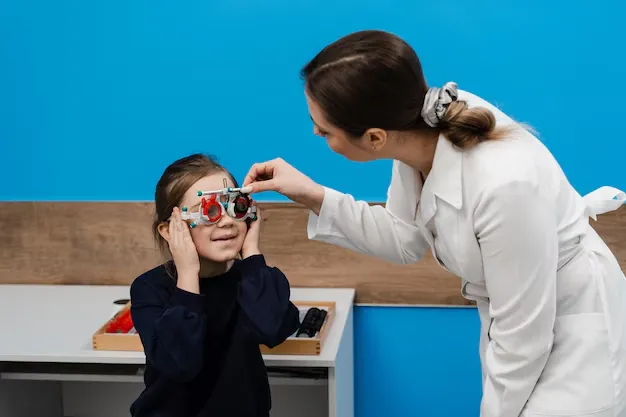
It’s essential for parents to be aware of signs that may indicate their child is facing visual challenges. Common symptoms include difficulty reading or losing place while reading, which can suggest issues with eye tracking. Children who avoid reading or tasks requiring visual focus may also be struggling with visual processing problems.
Additional signs to watch for include complaints of eye strain, headaches, or double vision. These issues can affect the child’s ability to concentrate, leading to frustration. Difficulty following along in class or during activities requiring eye coordination, as well as poor handwriting or trouble with fine motor skills, are also red flags.
If your child exhibits any of these symptoms, scheduling an eye exam with a pediatric optometrist is crucial.
If your child exhibits any of these symptoms, scheduling an eye exam with a pediatric optometrist is crucial.
How Vision Therapy Supports Academic Success
The connection between vision and academic performance is undeniable—when children struggle with visual issues, it can significantly impact their ability to learn and perform tasks effectively. Vision therapy is a targeted approach designed to address these challenges, helping children improve their ability to focus, track objects, and process visual information. By strengthening key visual skills, vision therapy can make a noticeable difference in a child’s academic performance and overall success.
Children who experience difficulties with reading, writing, or paying attention in class often benefit from vision therapy. For example, issues like eye tracking difficulties or focusing problems can make reading and completing assignments a struggle. Vision therapy’s structured exercises target these specific areas, improving eye coordination and visual processing. By working on these skills, children can stay focused for longer periods, complete tasks with more ease, and avoid common distractions that may interfere with learning.
Many children who undergo vision therapy experience significant improvements in their academic performance. Reading fluency and comprehension tend to improve as the child learns to track words more effectively and sustain focus while reading. These benefits extend to other areas of academic life as well, including writing, problem-solving, and classroom engagement. With better visual abilities, children can process information faster and more accurately, which enhances their overall learning experience.
In addition to the academic benefits, vision therapy can reduce frustration and anxiety related to visual struggles. As children gain confidence in their visual skills, their self-esteem improves, and they feel more capable in the classroom. These improvements not only lead to better academic outcomes but also create a more positive and fulfilling learning environment for the child.
Is Vision Therapy Right for My Child?
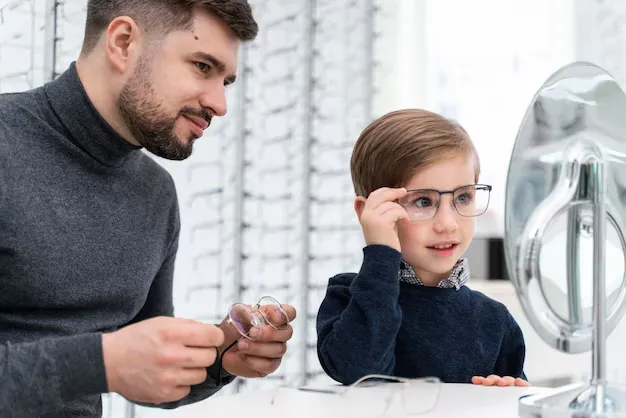
If your child is struggling with visual issues, vision therapy could be the solution. A comprehensive eye exam by a qualified optometrist is the first step in determining if vision therapy is appropriate. Based on the findings, the optometrist will create a personalized therapy plan to address your child's specific visual challenges.
Vision therapy requires dedication from both the child and their family. Regular therapy sessions, along with consistent home practice, are crucial for optimal results. The duration of therapy varies based on the severity of the issue, but many children experience significant improvement within a few months. Ultimately, vision therapy can greatly enhance your child’s academic performance, social interactions, and overall quality of life.
If your child is struggling with visual issues, vision therapy could be the solution. A comprehensive eye exam by a qualified optometrist is the first step in determining if vision therapy is appropriate. Based on the findings, the optometrist will create a personalized therapy plan to address your child's specific visual challenges.
Vision therapy requires dedication from both the child and their family. Regular therapy sessions, along with consistent home practice, are crucial for optimal results. The duration of therapy varies based on the severity of the issue, but many children experience significant improvement within a few months. Ultimately, vision therapy can greatly enhance your child’s academic performance, social interactions, and overall quality of life.
Start Your Child’s Vision Therapy Journey Today
If you suspect your child could benefit from vision therapy, consider scheduling a consultation with an experienced optometrist. At Kleinwood Vision, we specialize in pediatric eye care and vision therapy, offering a holistic approach to support your child's visual development. We understand how visual challenges can impact learning and social experiences, and our team is dedicated to providing personalized therapy plans to address specific needs.
By working with us, you can help your child overcome issues with eye coordination, focusing, and visual processing. Early intervention is crucial in preventing further complications and improving your child's ability to perform well in school and social settings. Through consistent therapy and home practice, your child will gain the necessary skills to navigate everyday tasks with confidence. Contact Kleinwood Vision today to learn more about how vision therapy can help your child thrive and reach their full potential.

Contact Info
Hours of Operation
Mon - Fri | 9:00 AM - 5:00 PM
Sat - Sun | Closed
Holiday Hours: We are closed for the following holidays: New Years Day, Memorial Day, Independence Day, Labor Day, Thanksgiving Day, Christmas Day
© 2026 Kleinwood Vision. All rights Reserved.
